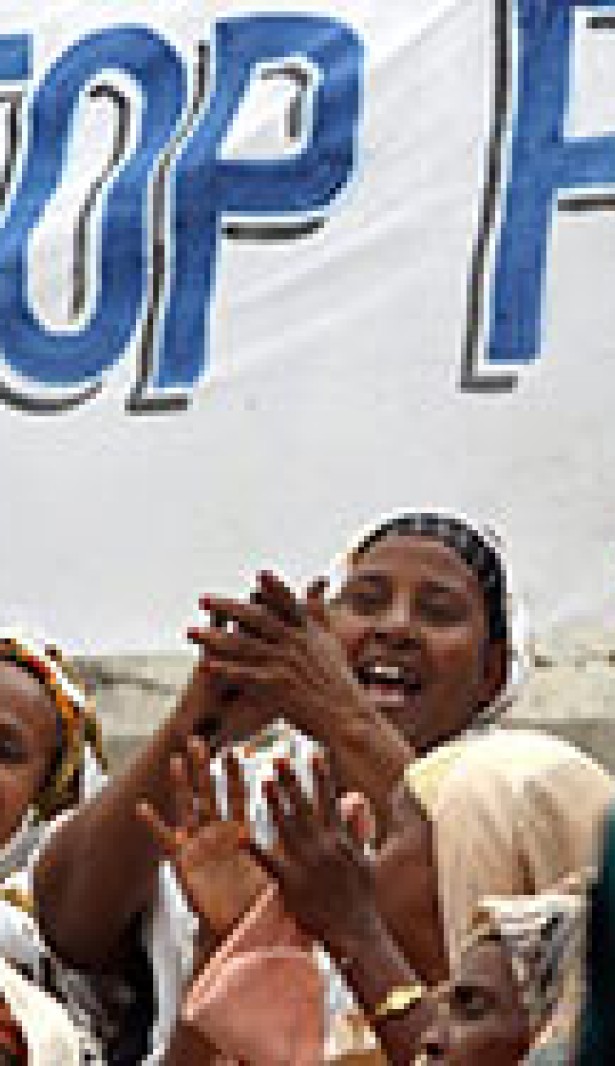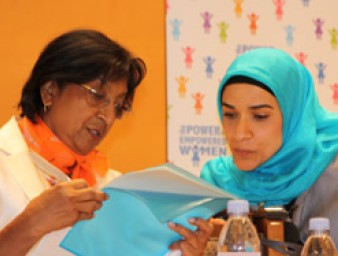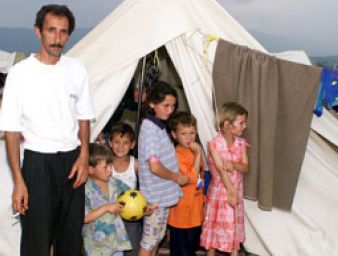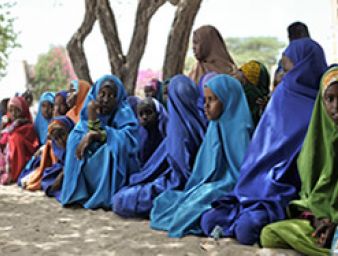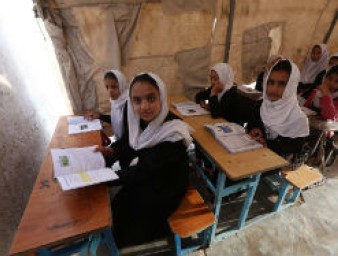Eradicating harmful practices against women and girls
19 November 2014
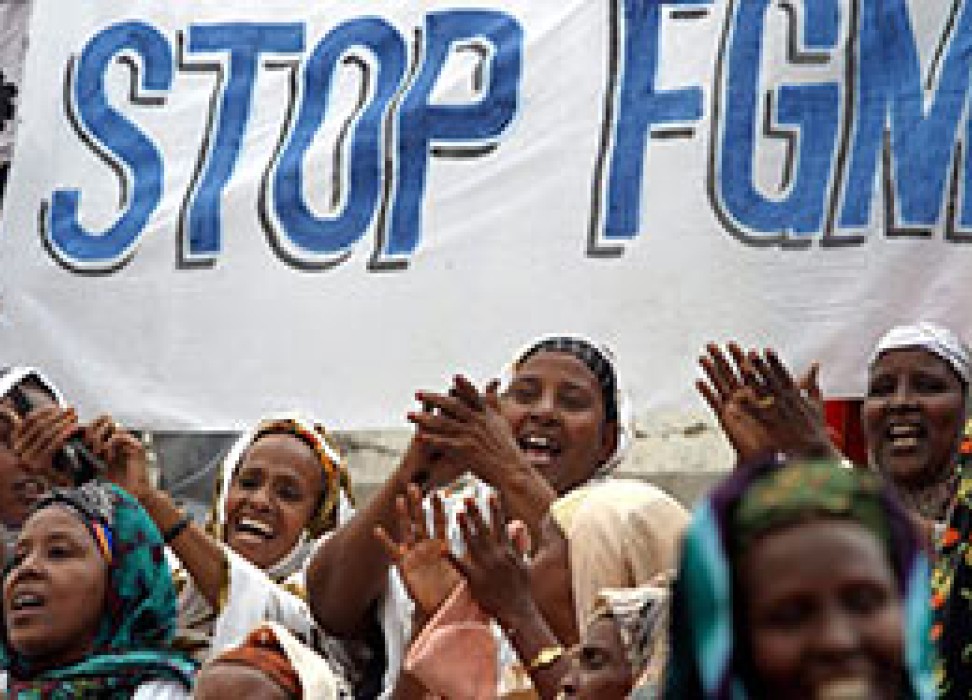
For the first time, two of the influential UN human rights expert committees have worked together to develop guidelines for States aimed at preventing and eliminating harmful practices primarily affecting women and girls.
Campaigning over many years against the most common of these practices, female genital mutilation, child and/or forced marriage, polygamy, as well as crimes committed in the name of so-called honor crimes has not led to their elimination.
The Committee on the Elimination of Discrimination again Women (CEDAW) and the Committee on the Rights of the Child (CRC) believe that these harmful practices may actually be spreading to regions and countries where they have not been documented before, partly due to migration, and they consider that social media may also be a contributing factor.
Acknowledging their common concerns about these abuses, the Committees have developed a joint General Recommendation, which details the human rights contravened by these practices and recommends measures, both social and legal, that are available to States, which are parties to the Conventions, for their eradication.
Violeta Neubauer, the Vice-Chair of CEDAW, and Hiranthe Wijemanne, the Vice-Chair of the CRC, welcomed the joint adoption of the General Recommendation and offered their views on the issue.
Q. Why did the committees decide to join forces on this issue?
Hiranthe Wijemanne: Well, for several reasons, one of the most important being that harmful practices have not been adequately addressed by States Parties and so they keep recurring. There have been verbal commitments but action has lagged behind.
In addition, many harmful practices entail violence against women and girls, an area covered by both Committees, so for that reason we thought it was right to work together as a joint force, with a hope of making a difference.
Q. Many of these harmful practices are justified by the people who practise them with reference to traditions, to religion, and to social norms. What is your General Recommendation saying about that?
Violeta Neubauer: CEDAW is clear on this, no tradition, religion, faith, custom or any other ground can be used to justify any form of discrimination against women. With regard to the specific forms of harmful practices, religion is often misused to justify them.
Q. Are you seeing harmful practices emerging as a problem more and more as you review States, irrespective of what region in the world they come from?
Violeta Neubauer: We are observing different trends. In certain countries, we see concerted efforts to address harmful practices like female genital mutilation and child marriage which, according to those States, have resulted in their decrease. At the same time, we see the re-emergence of harmful practices in countries that had almost eliminated them due to factors such as conflict situations.
Q. When we talk about harmful practices, it is assumed we are usually referring to female genital mutilation, forced and early marriages, and polygamy but the General Recommendation also makes reference to some other harmful practices, such as body modifications.
Violeta Neubauer: Many other harmful practices are brought to the attention of the Committees. They include, neglect of girls, virginity testing, violent initiation rites, widowhood rites, violence against alleged witches, and body modifications such as breast ironing. Furthermore, harmful practices related to social norms concerning the body, including its fashionably thin appearance, are emerging. Women and girls are surgically altering their bodies and resorting to weight-losing regimes that may result in damaging their health.
Q. How serious a problem are harmful practices?
Hiranthe Wijemanne: It is a very serious problem, and one that we see going beyond a country’s borders. Often the rhetoric against them is not put into practice, and there are no coordinated efforts. That is why we are urging States to consider a whole package of measures, including advocacy and policy, and consultation with a wide section of people, including at community level. What we are aiming for is zero tolerance for harmful practices, and their eventual cessation.
Q. What are some of the key recommendations you are making?
Hiranthe Wijemanne: We call for a holistic approach that involves consulting with communities and across sectors. It is also absolutely vital to have better data collection and monitoring to be able to evaluate the scale of the problem and to develop better preventive measures.
Q. How do you hope States will respond?
Hiranthe Wijemanne: Many harmful practices have continued and have been justified with reference to culture, tradition or religion. What we are saying is that the time has come to examine this issue from a human rights perspective – to think of the rights of girls, and boys, and to sharpen our thinking on this.
States need to examine the norms and customs that give rise to harmful practices; they need to work with people to eradicate harmful practices. Girls need to be empowered, above all through education. We also need to consider boys and recognise that violence committed by them and by men often has its roots in violence they themselves suffered, that it is a cycle of violence.
Q. What does prevention entail?
Violeta Neubauer: By prevention we mean activities to change the existing social and cultural patterns because very often, for instance, the parents of girls who decide to marry their young daughters, who decide their daughters should undergo female genital mutilation, they are doing this in the belief that it is best for their child.
I hope States will understand that one of their obligations and well described in this general recommendation is that a holistic approach is required to address harmful practices and that legislation prohibiting all forms of harmful practices that constitute a violation of human rights is a must.
Q. What outcome are you hoping to see as a result of this joint General Recommendation?
Hiranthe Wijemanne: When States Parties report to our committees on how they are implementing their treaty obligations, they should be clear that they have to take into account their legal obligation to address harmful practices. We know these practices will not be eradicated overnight, but our Recommendation offers a blueprint for action, and I hope it will help to make a real difference to the lives of girls and women who are at risk.
19 November 2014
